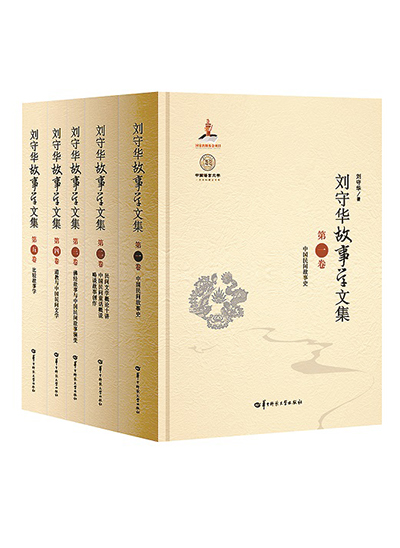Chinese folktale studies by Liu Shouhua

A Collection of Liu Shouhua’s Folktale Studies
Liu Shouhua, a professor from the School of Chinese Language and Literature at Central China Normal University, is known in the folklore circle as “a person who has chased stories all his life.” Since 1956, he has been deeply engaged and made fruitful results in the fields of folk literature, folklore, comparative literature, ancient literature, religious studies, children’s literature, and popular literature, becoming a leading figure in contemporary Chinese folktale studies. A Collection of Liu Shouhua’s Folktale Studies was published to systematically present his achievements.
How to trace the origin of folktales? Liu advocated a systematic investigation based on multiple factors such as ethnic history, language family, cultural exchanges, and business and trade. Merely resting on documentary records and the geographical distribution of variant texts to construct prototypes is not feasible in the study of Chinese folktales.
Liu proceeds from the materialist view on history, historical geography, and its storytelling theory, and combines folktales’ literary and life attributes, forming a paradigm of “folktale cultural studies.” This paradigm is an open and comprehensive research approach based on typological research and combined with morphological structure, cultural connotation, and aesthetics. It effectively avoids the historical geography school’s monogenesis theory, emphasis on oral texts, and ignorance of the artistic characteristics of documentary description and oral narration, thus generating wide-ranging influence in the field of Chinese folktale studies.
Taking folktales as the research object is not equal to folktale studies, which as a discipline actually hinge on the self-sufficiency, expansion, and innovation of the terminology system, research field, and academic paradigms. For more than 60 years, Liu has continuously developed the disciplinary system and disciplinary borders of folktale studies, demonstrating a clear-cut disciplinary awareness. He attempts to build a disciplinary system for folktale studies from the dimensions of definition and categories, inheritance, typological similarities and variations, functions, narrative art, and research methods, which is believed by his peers as marking the maturity of Chinese studies on folktale genres.
Comparative folktale studies are a sphere where Liu Shouhua has long cultivated and harvested achievements. With the aid of research tools from folktales studies, comparative literature, religious studies, and cultural anthropology, the author conducts cross-cultural tracking and comparative research on folktales. He traces the spread of folktales that have stepped over spatial-temporal and linguistic barriers, discovering the mystery of cultural transmission and the spiritual world. As a result, comparative folktale studies have become closely associated with his name.
Qi Lingyun is a professor from the College of Literature and Journalism at Xiangtan University.
Edited by YANG LANLAN
